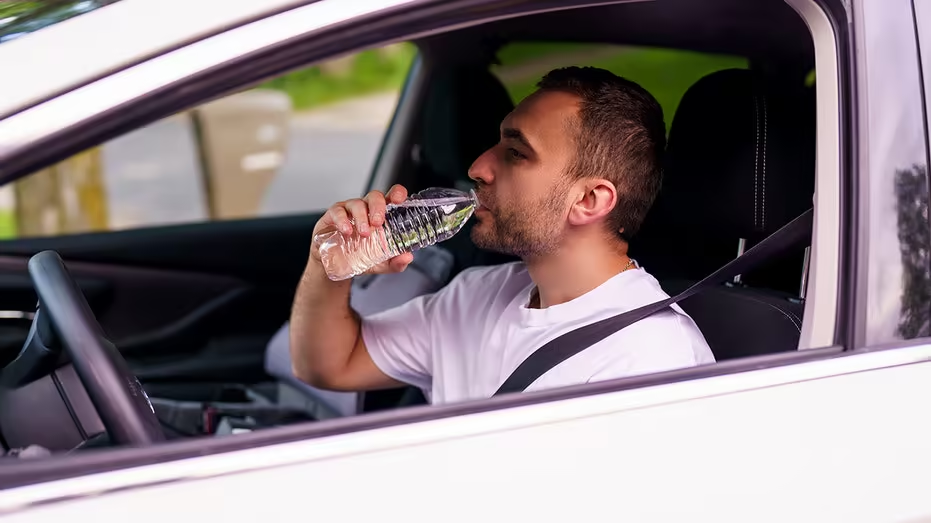Health Risks of Heated Plastic Bottles
During the summer months, many Americans inadvertently leave plastic water bottles in their cars, exposing them to high temperatures. Experts caution against drinking from these bottles due to potential health risks. Prolonged sun exposure can lead to chemical leaching and bacterial growth, posing a dual threat to health.
Chemical Leaching Concerns
Plastic bottles, often made from polyethylene terephthalate (PET), can release chemicals like bisphenol A (BPA) and phthalates when heated. These chemicals are known as endocrine disruptors, which can interfere with the body’s natural hormones. Although the FDA considers current levels safe, concerns persist as some substances have been banned or phased out.
Bacterial Growth in Warm Conditions
Bacteria such as E. coli and Staphylococcus aureus can thrive in opened plastic bottles left in warm environments. These bacteria can multiply rapidly, potentially leading to gastrointestinal issues or infections. Microscopic grooves in plastic provide ideal conditions for bacterial growth.
Microplastics and Health Implications
Another concern is microplastics, which can shed from bottles over time, especially under heat. Animal studies link microplastic exposure to inflammation and hormonal disruption, though human health impacts remain unclear.
Safer Alternatives to Plastic Bottles
Experts recommend avoiding the reuse of single-use plastic bottles in hot environments. Glass and stainless steel bottles are safer alternatives as they withstand heat better and are easier to clean thoroughly, reducing microbial growth.
